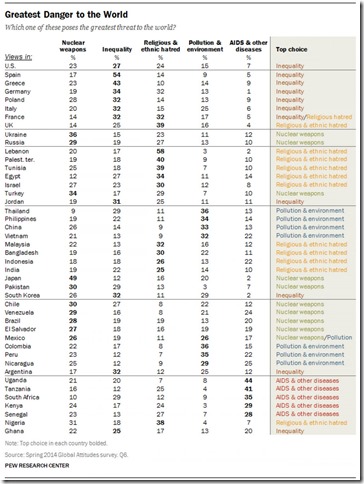It would be surprising, as Amis says, that such a warped psychology as Hitler’s could ever be “a considerate and energetic lover”. Yet, once I began to write about the Nazi wives, I realised that the ability of mass murderers to compartmentalise their lives is one of their most disturbing aspects.
A new documentary about Himmler’s home life, called The Decent One, by the acclaimed filmmaker Vanessa Lapa, focuses on the tender personal letters between Himmler and his wife Marga, largely about their daughter Puppi, even as he perpetrated daily atrocities. It raises the same questions as Thomas Harding’s book Hanns and Rudolf, about the private life of Rudolf Höss, the Auschwitz commandant, whose children played just yards away from the camp, oblivious of the horrors occurring there.
Jane Thynne
October 15, 2014
What Hitler’s sex life was really like
[What I don’t think most people really understand is how easy it was, and is, for people to murder people on a mass scale. Hitler and the Nazi’s are viewed as terrible monsters the likes of which have only been seen once in history. Wrong.
People, across differing societies, accept orders to do terrible things to other people up to and including murder them. Read Hitler’s Willing Executioners: Ordinary Germans and the Holocaust. Or The Gulag Archipelago. Or The Rape Of Nanking: The Forgotten Holocaust Of World War II. Those are just some of the better known instances.
You can’t imagine our government rounding up people and putting them in camps? “That just can’t happen in this country”? Wrong. It did happen. Read Looking Like the Enemy: My Story of Imprisonment in Japanese American Internment Camps.
The people that inflict these terrible things did not have warning beacons flashing on their foreheads. Many, if not most, were kind to their family and pets and widely admired in society at the time. In both Hitler’s Willing Executioners and The Rape of Nanking, it is documented that the perpetrators sent photos and postcards of their atrocities to their families and the public at large. They were happily doing their jobs for the good of their country and the betterment of mankind.
I think one of the key flags to identify people who do these things are that they believe that the good of society outweighs the rights of the individual. There may be exceedingly narrow circumstances where this is true, Ebola comes to mind but when I hear someone advocate people “make sacrifices for the greater good” I go on full alert. Those are fighting words to me and such a person is, at a minimum, an enabler of, if not an advocate for, the next genocidal tyrant. And as such they deserve all the contempt given Stalin, Pol Pot, and Hitler.—Joe]
Like this:
Like Loading...

